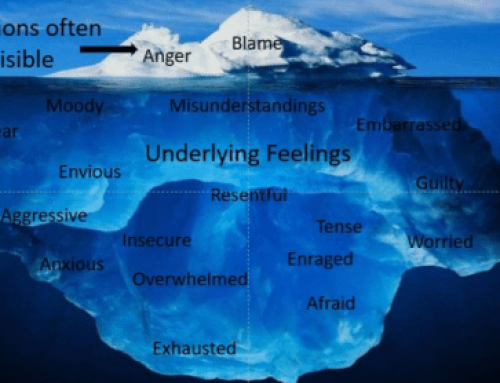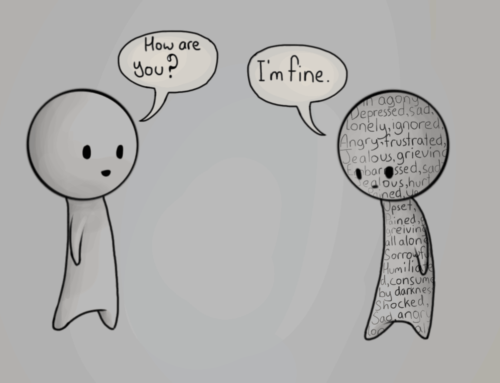Exploring Different Kinds of Unhappiness
March 16, 2017
Categories: Emotion
I don’t like to be unhappy. When I start to feel sad or frustrated, my tendency is to do something to make myself feel differently. I might try to avoid the thing that is causing my discomfort, or do something to distract myself.
Sometimes these strategies to escape unhappiness can do more harm than good. For example, my feelings of unhappiness can be a teacher for me, and help me understand something about my life that isn’t working. If I try to escape the feelings too soon, I miss out on the learning experience.
Also, growth occurs when I push myself outside of my comfort zone. This process inevitably involves a certain amount of pain and discomfort. If I try to escape these feelings too quickly, I’m probably playing it safe in my life. I might not be growing as much as I could or reaching my full potential.
Finally, normal life involves a certain amount of pain and hardship. It’s just the nature of life. Sickness happens. Natural disasters happen. The people and animals we love eventually pass away. Sometimes we are hurt by the bad decisions of others. If we want to live a full life, a certain amount of unhappiness is inevitable. If we want to avoid this unhappiness, we have to limit our life experiences.
Freud once said that the goal of psychotherapy was to endure normal unhappiness, but avoid neurotic misery. Normal unhappiness involves the regular ebbs and flows of life. Neurotic misery, on the other hand, involves an exaggerated experience, which is usually the product of our own mind.
It’s important to differentiate between these two experiences. If we are experiencing normal unhappiness, the key is endurance and acceptance. Normal unhappiness happens to all of us who are trying to live full lives. Normal unhappiness is unavoidable, and if we try to escape it, that process can cause more harm than good.
If we are experiencing neurotic misery, on the other hand, we might want to get help. Counseling can help us figure out what it is about us that is leading to our exaggerated level of unhappiness.
How can you tell the difference between normal unhappiness and neurotic misery? Here are a few questions to help you differentiate between the two:
- How would the average person react in your situation? Ask yourself what you think an average person would feel in your situation. If your reaction is in line with what an average response might be, it’s probably normal unhappiness. If your reaction is excessive, it might be neurotic misery.
- Check out your reaction with a person you trust. Sometimes it’s difficult to figure out how an average person might react. When this happens, it can be helpful to check out your reaction with someone you trust. Find someone whom you trust and has your best interests in mind. Tell them the situation, and ask how they would respond in the same situation. Then you can assess whether your own reaction is normal or excessive.
- Check your past. Sometimes we react to something because of unresolved issues in our past. If what is happening now reminds you of your past in some way, your reaction might be based in the past and not the current situation. It can be helpful to process your reaction (and any unresolved issues it taps into) with a professional counselor.
- Hold the future with an open hand. Sometimes we feel upset because we are worrying about something that might happen in the future. This is usually a bad deal, because we are experiencing anticipatory pain about something that may or may not happen. Sometimes the anticipatory pain is actually more painful than the actual thing we are worried about! If you are experiencing pain about something that hasn’t happened yet, check in with yourself. Can you hold the future with an open hand? If you are going to feel unhappiness, make sure something bad actually happened.
Next time you feel unhappy, check in with yourself. Are you feeling normal unhappiness, or neurotic misery? If it is normal unhappiness, might this be something you can accept? What do your feelings have to teach you about yourself? Could this be an area of growth for you? Might it just be a normal part of life?
However, if you are experiencing neurotic misery, can you take a step toward getting some help? Could you reach out to a friend, family member, or counselor to get some additional support?
Related Thoughts

Subscribe To My Newsletter
Join my mailing list to receive the latest blog posts.
Receive my e-book “The Mental Health Toolkit” for free when you subscribe.





